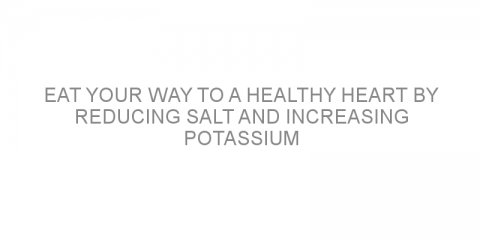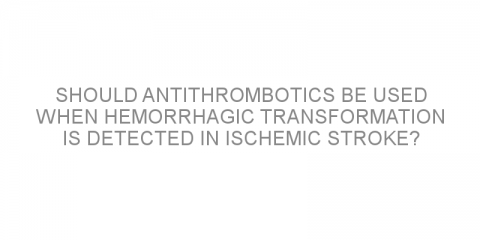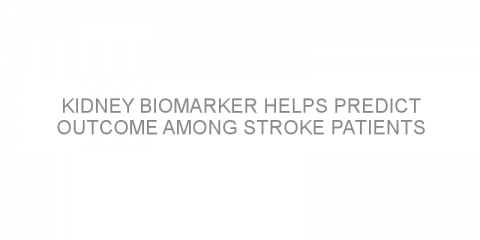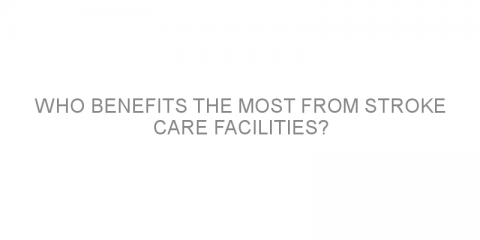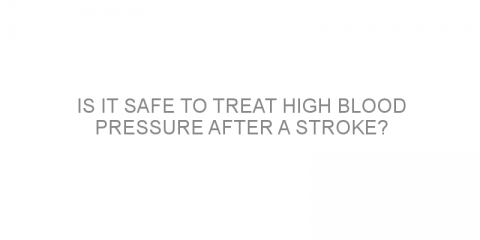In a nutshell This study reviewed the effect of dietary intake of salt and potassium on blood pressure, cardiovascular disease, and mortality. Some background Many studies have linked high dietary salt intake with high blood pressure and reduced cardiovascular (heart) health. Salt causes kidneys to hold...
Read MoreStroke Posts on Medivizor
Can walking help prolong your life?
In a nutshell This study looked at how effective regular physical exercise is in reducing mortality caused by cardiovascular disease and mortality in general. Some background It is widely accepted that increasing physical activity is good for health, particularly for the heart. Physical activity helps to manage...
Read MoreShould antithrombotics be used when hemorrhagic transformation is detected in ischemic stroke?
In a nutshell Many physicians are reluctant to use antithrombotics once hemorrhagic transformation (HT) has occured in ischemic stroke. Antithrombotics are believed to be associated with worsening HT and consequent neurological deterioration (decreased mental ability). This study investigated whether this association was true. Some...
Read MoreKidney biomarker helps predict outcome among stroke patients
In a nutshell This study evaluated the impact of kidney biomarkers on predicting the outcome among critically ill stroke patients. Some background Stroke is a sudden brain dysfunction caused by blood flow disturbances. It can be caused by a blood clot in the brain (ischemic stroke) or a burst blood...
Read MoreWho benefits the most from stroke care facilities?
In a nutshell This study compared the benefits of stroke care facilities among different groups of patients. Some background Stroke is a sudden brain dysfunction caused by blood flow disturbances. It can be caused by a blood clot in the brain (ischemic stroke) or a burst blood vessel (hemorrhagic stroke). Both types of stroke cause a lack of...
Read MoreIs aspirin the best blood thinner after valve replacement surgery?
In a nutshell This study compared the effect of two different types of blood thinners, aspirin and anticoagulants, after valve replacement surgery. Some background As blood flows through and out of the heart, it needs to flow through heart valves. Heart valves separate each of the heart compartments and stop the blood from flowing backwards....
Read MoreIs it safe to treat high blood pressure after a stroke?
In a nutshell This study compared blood pressure levels measured before and after the onset of different types of stroke. Some background A stroke is a disturbance of blood supply to a part of the brain. This can be caused by a blood clot in the brain (ischemic stroke) or a burst blood vessel...
Read MoreWhat is the quality of life in long-term survivors of stroke?
In a nutshell This study looked at the quality of life led by stroke survivors 10 years after their initial stroke occurrence. Some background A stroke occurs when there is a disturbance of blood supply to a part of the brain. This can be caused by a blood clot in the brain (ischemic stroke) or a burst blood...
Read MoreWhat’s Up With All The Spoons? Spoonies
Being a Spoonie You may not know it but if you are a patient with a chronic illness, you may be a spoonie. In 2010 Christine Miserandino wrote a post called The Spoon Theory. In the post, Christine describes explaining to her best friend what it really feels like to live with Lupus. She asks her friend to hold 12 spoons and tells her that the spoons are...
Read More3D imaging may predict stroke risk
In a nutshell This study examined whether identification of changes in plaque composition in the carotid may be related to subsequent vascular events in a high risk population. Some background The carotid arteries are the main suppliers of blood to the brain. Carotid atherosclerosis is the most common of carotid...
Read MoreGentlemen, decrease trans fat to decrease stroke risk
In a nutshell This study examined the association between trans fatty acid intake and stroke incidence. Some background A stroke is caused by the interruption of the blood supply to the brain, usually because a blood vessel bursts (hemorrhagic stroke) or is blocked by a clot (ischemic stroke). This cuts off...
Read MoreDo warfarin and aspirin contribute to stroke occurence?
In a nutshell This study examined the effect of warfarin and aspirin on hemorrhagic stroke risk. Some background Hemorrhagic stroke constitutes approximately 10% to 20% of all strokes. It occurs when a blood vessel in the brain breaks, leaking blood into the brain. Hemorrhagic stroke encompasses several subtypes such...
Read More
